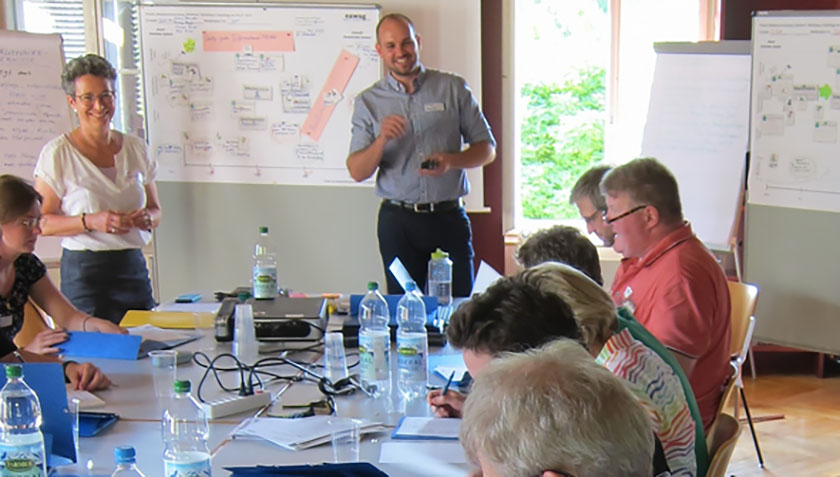Solothurn
Decision-making for the transition from central to novel wastewater infrastructure systems
By Philipp Beutler

An increasing need for rehabilitation due to aging wastewater infrastructures in rural Swiss municipalities offers an opportunity to replace todays’ grid-based system with alternative wastewater systems. The project "Decision-making for the transition from central to novel wastewater infrastructure systems" i) examined stakeholders’ expectations (objectives) and preferences (e.g. importance of objectives) regarding future wastewater systems. We then ii) developed transition pathways between existing and alternative wastewater systems, iii) subjected all systems to a multi-criteria evaluation to overcome decisions based solely on cost comparisons, and iv) analysed how well the objectives identified were met before, during and after the transition process.
The project involved Eawag‘s research departments ESS and SWW, the cantonal Office for the Environment Solothurn and project teams consisting of 7–14 community representatives and interested residents in two case studies. Wings investigates non-grid approaches that are able to achieve the same or better performance compared to grid-based wastewater systems. This project was ideally suited to bring together scientific, administrational and local stakeholders in an OECD context.
In a structured, participatory process based on Multi-Criteria Decision Analysis (MCDA), we identified 14 objectives covering environmental protection, social acceptance, costs, and technology aspects in both case studies. The elicited preferences reflected a broad range of opinions. In particular, local stakeholders gave high importance to environmental objectives. Among all the centralized, decentralized and hybrid systems examined, and taking the elicited preferences into account, decentral, source separating technologies best achieved the objectives. Costly grid-based systems with large and highly effective wastewater treatment plants (including micropollutant removal) were ranked second or third best options. Interestingly, all stakeholders were open to considering decentralized technologies as a future wastewater system. Finally, we identified the potential for a pilot study because one case study involves further consideration of decentralized technologies in the community board’s planning process.
In June, project results were disseminated in a webinar hosted by the Swiss Water Association (VSA) . More detailed project results will be published in papers, specialist articles and reports. A national final event had to be postponed due to the COVID-19 pandemic and is now planned for spring 2021.
Key insights
- Stakeholders in both rural case studies gave highest importance to the protection of water bodies and the environment
- Decentralized wastewater systems combined with source separation technologies achieved local stakeholders’ objectives even better than centralized wastewater systems with large-scale treatment plants
- Stakeholders appreciated the multi-criteria decision support process to gain greater insight into the wide range of decisions possible relative to their values and desired objectives’ outcomes
Publications
Beutler, P., Staufer, P., Larsen, T., Maurer, M., Lienert, J., Aqua&Gas-Articel (in preparation)


